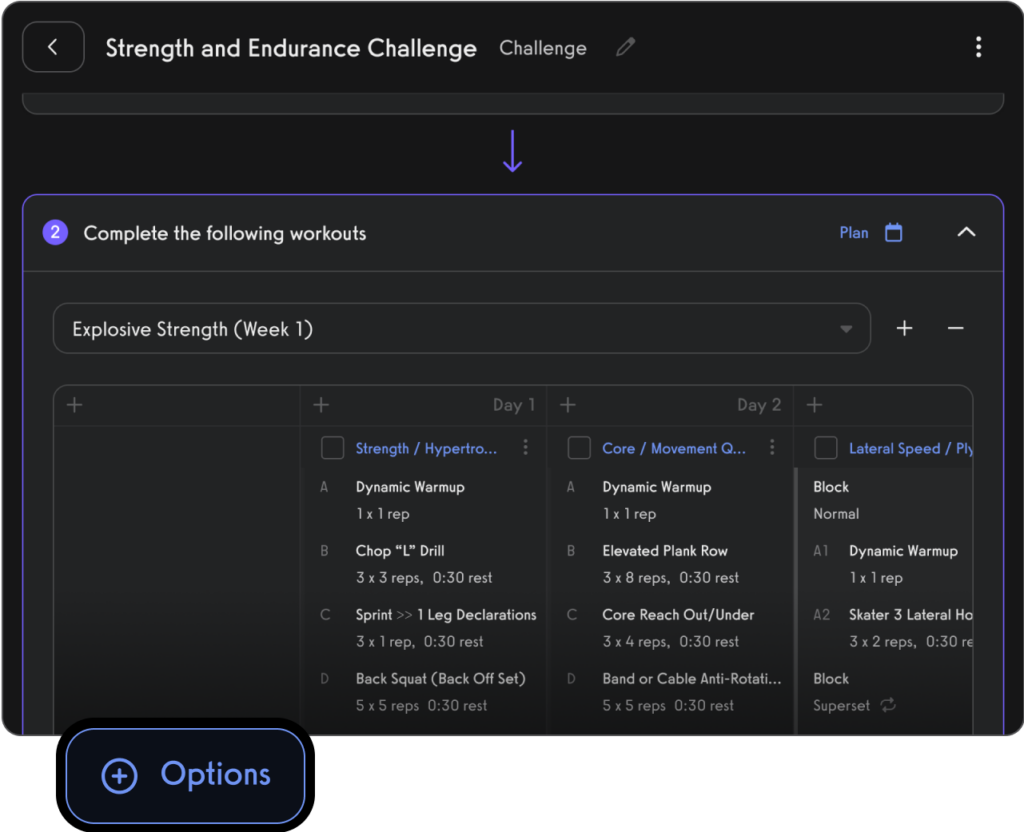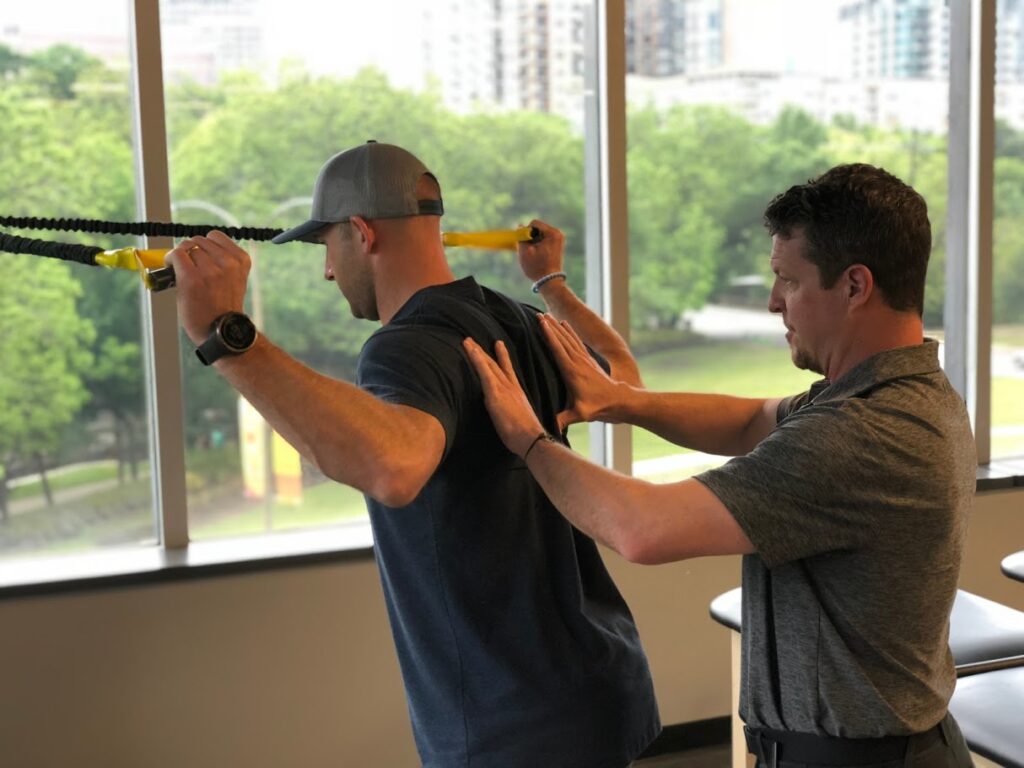NCCPT Certified Personal Trainer (CPT) Certification Review (2025)
Read this NCCPT Certified Personal Trainer (CPT) Certification Review to decide if the NCCPT CPT Certification is worth it and what the best personal training certification is for you.

In the ever-growing fitness industry, becoming a certified personal trainer is an excellent way to turn your passion for health and fitness into a rewarding career. There are various certifications available, each with its own unique features and requirements. In this article, we will explore the NCCPT Certified Personal Trainer (CPT) Certification and provide an in-depth NCCPT CPT review and look at its eligibility, exam overview, benefits, renewal process, comparisons with other certifications, success stories, and frequently asked questions.
Looking to become a certified personal trainer? Read our comprehensive review of the NCCPT Certified Personal Trainer (CPT) Certification to find out if it’s the right fit for you. Whether you want to learn how to become a personal trainer, or learn how to become a fitness influencer, or learn how to open a gym, or learn how to start a fitness business, or anything in between, use the Exercise.com platform to accomplish your fitness business goals.

You can start an online personal training business, make a fitness app, learn how to make money selling workout plans online, put in-person personal training marketing ideas into action, use personal training income ideas to find personal trainer career options that will put you on track for the highest paying fitness jobs, and many other ways to make money from fitness doing what you love.
With the Exercise.com platform you have the best online fitness coaching software and the best software for fitness influencers all in one! (Not to mention the best gym software and the best personal training software).
Create workout plans.

Manage clients.


Run online fitness challenges.

Create and sell fitness memberships, products, and digital offers.

Manage, message, and market to your online personal training clients and leads.

All from your very own custom branded fitness apps.


NCCPT Certified Personal Trainer (CPT) Certification
The NCCPT Certified Personal Trainer (CPT) Certification is a renowned and respected certification recognized worldwide. This certification program empowers trainers with the knowledge and skills necessary to excel in their profession. By completing the program, trainers gain credibility and demonstrate their expertise, which increases their chances of success in the competitive fitness industry.
NCCPT CPT General Information
The NCCPT (National Council for Certified Personal Trainers) Certified Personal Trainer (CPT) Certification is a comprehensive program designed for individuals seeking to establish or advance their career in personal training. Recognized within the fitness industry, this certification focuses on equipping candidates with the knowledge and skills necessary to design and implement effective, safe, and personalized fitness programs for clients of all fitness levels.
- Targeted at aspiring personal trainers, fitness enthusiasts, and health professionals looking to enhance their expertise in personal training.
- The curriculum encompasses key areas such as anatomy, physiology, exercise science, nutrition, client assessment, program design, and ethical practices within personal training.
- Candidates will undergo a combination of theoretical learning and practical application, facilitated through in-depth study materials, online resources, and a comprehensive certification examination, ensuring a well-rounded mastery of personal training.
- Graduates are prepared to work in various settings, including gyms, health clubs, wellness centers, or private practice, contributing to the health and wellness of individuals through personalized fitness guidance.
NCCPT Credibility and Reputation
The NCCPT has established itself as a reputable organization within the fitness industry, known for its rigorous certification programs and commitment to high standards in personal training education.
- Renowned for its evidence-based curriculum that aligns with current exercise science research and industry best practices.
- The NCCPT CPT Certification is accredited by reputable organizations, ensuring its recognition and respect within the fitness community and by employers.
- NCCPT supports its certified personal trainers with continuing education opportunities, resources, and a professional network, fostering a culture of ongoing learning and excellence in personal training.
Achieving the NCCPT CPT Certification signifies a professional’s commitment to quality and excellence in personal training, setting them apart as a knowledgeable and competent fitness professional.
NCCPT CPT vs Other Top Personal Trainer Certifications
When comparing the NCCPT CPT Certification to other top personal trainer certifications, it’s important to consider the specific focus, curriculum depth, and industry recognition of each program:
- NCCPT CPT Certification: Emphasizes a balanced approach to personal training, with comprehensive coverage of essential fitness and health topics, practical application, and client interaction.
- NASM Certified Personal Trainer: Known for its Optimum Performance Training (OPT) model, focusing on functional, performance, and corrective exercise.
- ACE Certified Personal Trainer: Highlights a holistic approach to fitness and wellness, covering a broad spectrum of health promotion and exercise programming.
- NCCPT’s certification provides a strong foundation in exercise science and practical training skills, making it suitable for those seeking a well-rounded personal training education.
- Certified professionals benefit from NCCPT’s focus on practical skills and real-world application, preparing them to effectively assess and train clients in diverse settings.
- The certification offers flexibility in learning paths and study materials, accommodating different learning styles and schedules.
Selecting the right personal trainer certification depends on individual career goals, preferred training philosophy, and client demographics. The NCCPT CPT Certification offers a comprehensive and flexible approach, suitable for aspiring trainers seeking thorough preparation for a career in personal training.
NCCPT Cost
The investment in the NCCPT Certified Personal Trainer Certification reflects the quality of the curriculum and the value it brings to a fitness professional’s career. The cost encompasses study materials, online resources, practice exams, and the certification exam fee.
- Program fees are structured to provide candidates with a range of study materials and support options, including textbooks, online courses, and interactive study tools.
- Early registration and package deals may offer cost savings, making the certification more accessible to aspiring personal trainers.
- The certification opens avenues for career advancement and increased earning potential, justifying the investment for serious fitness professionals.
While the cost is an important consideration, the professional development, enhanced credibility, and career opportunities afforded by the NCCPT Certified Personal Trainer Certification make it a worthwhile investment for individuals committed to a career in personal training.
To continue providing a comprehensive review of the NCCPT Certified Personal Trainer (CPT) Certification, the following sections will be covered:
NCCPT CPT Exam Content
The NCCPT CPT Certification exam is meticulously designed to evaluate a candidate’s knowledge and application of personal training principles. Key areas assessed in the exam include:
Exercise Science Fundamentals
- Comprehensive understanding of human anatomy, physiology, and kinesiology, and how these sciences apply to exercise and movement.
- Knowledge of the body’s energy systems, muscle actions, and the biomechanics of common exercises.
Assessment and Program Design
- Proficiency in conducting client assessments, including health history, fitness assessments, and goal setting, to inform personalized program design.
- Skills in developing safe, effective, and individualized exercise programs that align with clients’ fitness goals, abilities, and preferences.
Training Techniques and Modalities
- Familiarity with a wide range of training techniques, from resistance training and cardiovascular conditioning to flexibility exercises and functional training.
- Ability to modify and adapt exercises to suit different populations, including seniors, youth, and clients with specific health conditions.
Professional Practice and Ethics
- Understanding of the professional responsibilities of a personal trainer, including adherence to ethical standards, client confidentiality, and legal considerations.
- Knowledge of business practices relevant to personal training, such as client communication, record keeping, and professional development.
Successfully passing the NCCPT CPT Certification exam signifies a personal trainer’s comprehensive understanding of fitness training principles, equipping them with the credentials to deliver safe, effective, and personalized training services.
Example NCCPT Exam Questions
Here are some example NCCPT practice exam questions to help you prepare for the NCCPT accredited CPT exam:
Anatomy and Physiology
- Question: What muscle is primarily responsible for hip extension?
- A) Quadriceps
- B) Hamstrings
- C) Gluteus maximus
- D) Adductor magnus
- Answer: C) Gluteus maximus
Exercise Science
- Question: Which energy system is primarily used during a 100-meter sprint?
- A) Phosphagen system
- B) Glycolytic system
- C) Oxidative system
- D) Aerobic system
- Answer: A) Phosphagen system
Training Program Design
- Question: When designing a hypertrophy program, what is the recommended rest period between sets?
- A) 15-30 seconds
- B) 30-60 seconds
- C) 60-90 seconds
- D) 2-3 minutes
- Answer: B) 30-60 seconds
Nutrition
- Question: Which macronutrient is the primary source of energy during high-intensity exercise?
- A) Carbohydrates
- B) Proteins
- C) Fats
- D) Vitamins
- Answer: A) Carbohydrates
Client Assessment
- Question: Which assessment is used to measure a client’s cardiovascular endurance?
- A) 1RM (One Rep Max) test
- B) Skinfold measurement
- C) VO2 max test
- D) Sit-and-reach test
- Answer: C) VO2 max test
Exercise Technique
- Question: During a squat, the knees should be aligned with which part of the foot?
- A) Toes
- B) Heels
- C) Mid-foot
- D) Arches
- Answer: C) Mid-foot
Injury Prevention and Management
- Question: What is the recommended action if a client experiences sharp pain during an exercise?
- A) Continue with a lighter weight
- B) Modify the exercise
- C) Stop the exercise immediately
- D) Increase the weight
- Answer: C) Stop the exercise immediately
Special Populations
- Question: Which of the following is an important consideration when training older adults?
- A) Increasing intensity rapidly
- B) Focusing on high-impact exercises
- C) Enhancing balance and stability
- D) Limiting warm-up and cool-down
- Answer: C) Enhancing balance and stability
Ethics and Professionalism
- Question: A personal trainer should maintain client confidentiality by:
- A) Discussing client progress with other trainers
- B) Sharing client information on social media
- C) Keeping client records secure and private
- D) Using client testimonials without permission
- Answer: C) Keeping client records secure and private
Business and Marketing
- Question: What is an effective strategy for client retention?
- A) Offering inconsistent training schedules
- B) Providing personalized training programs
- C) Ignoring client feedback
- D) Reducing communication with clients
- Answer: B) Providing personalized training programs
These example NCCPT exam questions cover a range of topics that are typically included in the NCCPT-CPT exam. To further prepare, it is recommended to use an NCCPT study guide and take multiple NCCPT practice exam tests to ensure a comprehensive understanding of the material and to improve your chances of passing the what is NCCPT exam.
NCCPT CPT Continuing Education and Recertification
To maintain the NCCPT Certified Personal Trainer Certification, certified trainers are required to pursue ongoing professional development, ensuring they stay current with the latest in fitness training and industry standards:
- Continuing Education Units (CEUs): Certified trainers must complete a specified number of CEUs focused on fitness, personal training, or related subjects within each recertification cycle.
- Advanced Learning Opportunities: NCCPT offers a variety of advanced courses, workshops, and seminars that delve into specialized training topics, providing avenues for trainers to further refine their skills and knowledge.
- Professional Growth: Recertification and continuous education reflect a trainer’s commitment to their professional development and to providing high-quality personal training services.
Engaging in continuous professional development is essential for personal trainers to enhance their expertise, adapt to evolving fitness trends, and uphold the highest standards of practice in personal training.
Other NCCPT Offerings
In addition to the Certified Personal Trainer Certification, NCCPT provides a broad spectrum of fitness certifications and educational opportunities that can complement a trainer’s expertise:
- Specialty Certifications: Such as the Weight Management Specialist or Corrective Exercise Specialist certifications, allowing trainers to cater to specific client needs and expand their service offerings.
- Health and Wellness Certifications: Including certifications like the Group Exercise Instructor or Senior Fitness Specialist, equipping trainers with the skills to work with diverse populations.
- Continuing Education Courses: Covering a range of topics from nutrition and wellness to advanced training techniques, supporting trainers in their ongoing professional development.
Exploring additional certifications and courses can enrich a personal trainer’s practice, offering a holistic approach to client health and fitness that incorporates the latest scientific insights and training methodologies.
NCCPT CPT Certification Overall Rating
The NCCPT Certified Personal Trainer Certification is a respected program within the fitness industry, known for its comprehensive curriculum that covers all essential aspects of personal training. It prepares trainers to deliver personalized, safe, and effective fitness programs, catering to the diverse needs and goals of their clients.
Pros
- Comprehensive coverage of exercise science, program design, training techniques, and professional practice ensures trainers are well-equipped to provide high-quality services.
- Recognition of the NCCPT certification within the fitness industry enhances professional opportunities and credibility.
- Access to ongoing education and a professional community supports continuous learning and career development.
Cons
- The certification requires a significant investment in time and financial resources, but the value gained in terms of knowledge, skills, and professional opportunities can justify this investment.
- As with any certification, staying current and relevant in the ever-evolving fitness industry will require ongoing commitment to professional development and education.
Overall, the NCCPT Certified Personal Trainer Certification is highly recommended for individuals looking to start or advance their careers in personal training. It provides the necessary foundation in fitness principles and practical application to succeed as a personal trainer, contributing to the health and wellness of clients through effective and personalized training programs.
Obtaining the NCCPT CPT Certification is not just a piece of paper; it is a comprehensive journey that equips trainers with a deep understanding of human anatomy, exercise physiology, and nutrition. This knowledge allows trainers to design personalized fitness programs tailored to their clients’ specific needs and goals.
Throughout the certification program, trainers delve into the science behind exercise and its impact on the human body. They learn about the different energy systems, the principles of muscle growth and development, and the physiological responses to various types of training. Armed with this knowledge, trainers can optimize their clients’ workouts, ensuring they achieve maximum results while minimizing the risk of injury.
Moreover, the NCCPT CPT Certification goes beyond the physical aspects of training. Trainers also gain expertise in motivational techniques, behavior change strategies, and client communication. They learn how to create a supportive and empowering environment that fosters their clients’ commitment to their fitness journey.
One of the distinguishing features of the NCCPT CPT Certification is its emphasis on practical application. Trainers are not only required to pass written exams but also to demonstrate their ability to apply their knowledge in real-life scenarios. This hands-on approach ensures that trainers are well-prepared to handle the challenges they may encounter while working with clients.
Furthermore, the NCCPT CPT Certification provides ongoing support and resources to its certified trainers. This includes access to a network of experienced professionals, continuing education opportunities, and updates on the latest research and industry trends. This commitment to professional development ensures that trainers stay up-to-date with the ever-evolving field of fitness and can continuously enhance their skills.
The NCCPT CPT Certification is not just a certification; it is a comprehensive program that equips trainers with the knowledge, skills, and support necessary to excel in their profession. By completing this certification, trainers gain credibility, demonstrate their expertise, and position themselves for success in the competitive fitness industry.
Eligibility and Requirements for NCCPT Certification
To become eligible for the NCCPT CPT Certification, individuals must meet specific requirements. Firstly, applicants must be at least 18 years old. This age requirement ensures that candidates have reached a level of maturity and responsibility necessary to work as certified personal trainers.
Additionally, having a high school diploma or equivalent is required. This educational requirement demonstrates a certain level of academic achievement and basic knowledge that is essential for understanding the principles of exercise science and fitness training.
It is noteworthy that having a fitness-related background or prior experience is not mandatory, making this certification accessible to individuals from diverse educational and professional backgrounds. Whether you have a degree in exercise science or are looking to transition into a new career, the NCCPT CPT Certification provides an opportunity to enter the fitness industry and make a positive impact on people’s lives.
Moreover, applicants must possess a valid CPR/AED certification. This ensures trainers have the necessary skills to handle emergency situations and prioritize the safety of their clients. NCCPT understands the importance of this requirement and offers an online CPR/AED certification course. This course provides comprehensive training on cardiopulmonary resuscitation (CPR) and automated external defibrillator (AED) usage, equipping aspiring trainers with the knowledge and skills needed to respond effectively in case of emergencies.
By including CPR/AED certification as a requirement, NCCPT ensures that certified personal trainers are prepared to handle unexpected situations and provide a safe training environment for their clients. This emphasis on safety not only protects the well-being of individuals participating in fitness programs but also enhances the credibility and professionalism of NCCPT certified trainers.
NCCPT Certification Exam Overview
The NCCPT CPT Certification exam is a rigorous assessment designed to evaluate the knowledge and understanding of various fitness-related topics. This comprehensive exam consists of multiple-choice questions that delve into trainers’ abilities in areas such as exercise science, anatomy, physiology, nutrition, and client assessment techniques.
When embarking on the journey to become a certified personal trainer, it is crucial to understand the significance of the NCCPT Certification exam. This exam serves as a benchmark, ensuring that trainers possess the necessary expertise to provide safe and effective fitness guidance to their clients.
One of the notable features of the NCCPT Certification exam is its computer-based format. This allows trainers the flexibility to choose a convenient location and time to take the exam. With a vast network of authorized testing centers, candidates can find a center near them, eliminating the need for extensive travel and ensuring a stress-free testing experience.
Recognizing the importance of thorough preparation, the NCCPT provides candidates with a wide range of study materials and resources. These materials are carefully curated to cover all the essential topics and concepts that will be assessed in the exam. From comprehensive textbooks to interactive online modules, candidates have access to a wealth of information to aid them in their exam preparation journey.
Moreover, the NCCPT offers additional resources such as practice exams and sample questions. These resources allow candidates to familiarize themselves with the format and types of questions they will encounter in the actual exam. By practicing under simulated exam conditions, candidates can build confidence and refine their test-taking strategies.
It is worth noting that the NCCPT Certification exam is not merely a test of theoretical knowledge. The exam also assesses practical application through scenarios and case studies. Trainers must demonstrate their ability to apply their knowledge in real-life situations, making the exam a true reflection of their capabilities as fitness professionals.
Overall, the NCCPT Certification exam is a comprehensive evaluation that ensures trainers possess the necessary expertise to excel in their role. By emphasizing a wide range of fitness-related topics and practical application, the exam sets a high standard for certified personal trainers, ultimately benefiting clients who seek professional guidance in their fitness journeys.
Benefits of NCCPT Certification
Obtaining the NCCPT CPT Certification offers numerous benefits to certified personal trainers. Firstly, it enhances their professional credibility, as the NCCPT is recognized and respected by fitness industry professionals and employers alike.
With the NCCPT certification, personal trainers gain a competitive edge in the fitness industry. They are seen as knowledgeable and trustworthy professionals who have met rigorous standards of education and competence. This recognition not only boosts their reputation but also increases their chances of securing employment opportunities at reputable fitness centers, gyms, and health clubs.
Furthermore, this certification equips trainers with the knowledge and tools necessary to provide safe and effective workout programs. The comprehensive curriculum enables trainers to design personalized exercise plans, address individual limitations, and help clients achieve their fitness goals.
When trainers have a solid understanding of exercise science, anatomy, and physiology, they can create tailored workout routines that consider their clients’ unique needs and abilities. This personalized approach ensures that clients receive workouts that are safe, effective, and aligned with their specific goals, whether it’s weight loss, muscle gain, or overall fitness improvement.
Moreover, the NCCPT certification goes beyond the basics of exercise programming. Trainers learn about nutrition, injury prevention, and client motivation, allowing them to provide holistic guidance to their clients. By understanding the importance of nutrition in achieving fitness goals and preventing injuries, trainers can offer valuable advice on healthy eating habits and recommend appropriate supplements.
Additionally, NCCPT certification provides access to various continuing education opportunities. Trainers can expand their knowledge and stay updated on the latest research and techniques in the fitness field through specialized workshops and courses. This commitment to ongoing education allows trainers to consistently improve their skills and provide the best possible service to their clients.
By attending continuing education courses, trainers can learn about emerging trends in the fitness industry, such as functional training, high-intensity interval training (HIIT), and mindfulness practices. These new insights enable trainers to incorporate innovative and effective training methods into their sessions, keeping their clients engaged and motivated.
Furthermore, the NCCPT offers a range of advanced certifications that trainers can pursue to specialize in specific areas of fitness, such as corrective exercise, sports performance, or senior fitness. These additional certifications not only expand trainers’ expertise but also open up new career opportunities and allow them to work with a diverse clientele.
In conclusion, the NCCPT certification offers personal trainers a multitude of benefits. From enhancing professional credibility and increasing job prospects to equipping trainers with the knowledge and tools for safe and effective training, this certification is a valuable asset in the fitness industry. Furthermore, the access to continuing education opportunities ensures that trainers can stay up-to-date with the latest advancements in the field, providing their clients with the best possible guidance and support on their fitness journey.
NCCPT Certification Renewal and Continuing Education
Keeping up with industry standards and staying knowledgeable in the ever-evolving fitness field is crucial for personal trainers. The NCCPT (National Council for Certified Personal Trainers) recognizes the importance of ongoing education and requires certified trainers to renew their certification every two years.
Trainers who hold an NCCPT certification must accumulate 20 Continuing Education Units (CEUs) during this two-year period to maintain their certification status. These CEUs serve as a measure of a trainer’s commitment to professional development and staying up-to-date with the latest advancements in the fitness industry.
There are various ways for trainers to earn CEUs and fulfill the renewal requirements. One option is to attend workshops and seminars that cover a wide range of topics related to fitness, exercise science, nutrition, and client management. These events provide trainers with an opportunity to learn from industry experts, engage in hands-on activities, and network with other fitness professionals.
In addition to workshops and seminars, trainers can also earn CEUs by participating in conferences. These conferences often feature keynote speakers, panel discussions, and breakout sessions that delve into specific areas of interest within the fitness industry. Attending conferences not only enhances a trainer’s knowledge but also exposes them to new ideas, trends, and research findings.
Recognizing the convenience and flexibility of online learning, the NCCPT also allows trainers to earn CEUs by completing approved online courses. These courses cover a wide range of topics, from advanced training techniques to specialized areas such as sports nutrition or corrective exercise. Trainers can access these courses at their own pace, making it easier to balance their professional commitments with continuing education.
Furthermore, trainers have the option to earn CEUs through practical experience. This can include mentoring other trainers, presenting at fitness-related events, or conducting research studies within the field. By actively engaging in these activities, trainers not only contribute to the fitness community but also gain valuable practical knowledge that can be applied to their own training practice.
It’s important to note that the NCCPT encourages trainers to pursue a diverse range of continuing education activities. This ensures that trainers are exposed to different perspectives, methodologies, and approaches within the fitness industry. By broadening their knowledge base, trainers can better serve their clients and adapt to the ever-changing needs of the fitness landscape.
The NCCPT certification renewal process emphasizes the importance of ongoing education for personal trainers. By accumulating 20 CEUs every two years, trainers demonstrate their commitment to professional development and staying current in the field. Whether through attending workshops, seminars, conferences, completing online courses, or engaging in practical experiences, trainers have numerous opportunities to expand their knowledge and enhance their skills. Ultimately, this dedication to continuing education benefits not only the trainers themselves but also the clients they serve, as they receive the most up-to-date and effective training techniques.
Comparison with Other Personal Training Certifications
With numerous personal training certifications available, it is important for aspiring trainers to carefully consider their options. The NCCPT Certification stands out due to its comprehensive curriculum, recognition within the industry, and emphasis on hands-on training. While other certifications may focus solely on theoretical knowledge, the NCCPT ensures trainers are equipped with practical skills and the ability to apply their knowledge effectively.
When comparing the NCCPT Certification with other personal training certifications, one notable advantage is its comprehensive curriculum. The NCCPT’s program covers a wide range of topics, including anatomy, exercise physiology, nutrition, and client assessment. This extensive curriculum ensures that trainers have a solid understanding of the human body and the science behind exercise, enabling them to design safe and effective training programs for their clients.
In addition to its comprehensive curriculum, the NCCPT Certification also enjoys recognition within the industry. Many gyms and fitness centers prefer hiring trainers who hold an NCCPT certification due to its reputation for producing competent and knowledgeable professionals. This recognition can give NCCPT-certified trainers a competitive edge when seeking employment opportunities or building their own personal training businesses.
Another aspect that sets the NCCPT Certification apart is its emphasis on hands-on training. While theoretical knowledge is important, the ability to apply that knowledge in real-world scenarios is equally crucial. The NCCPT ensures that trainers gain practical skills through interactive training sessions, where they learn how to properly demonstrate exercises, correct form, and provide guidance to clients. This hands-on approach prepares trainers to confidently work with clients of varying fitness levels and effectively address their individual needs.
Furthermore, the NCCPT provides ongoing support to its certified trainers. Recognizing that personal training is a constantly evolving field, the NCCPT offers access to a network of professionals who can provide guidance and mentorship. This support system allows trainers to stay updated with the latest industry trends, techniques, and research, ensuring that they can continue to deliver high-quality training to their clients.
In addition to the professional network, NCCPT-certified trainers also have access to a wide range of educational resources. These resources include webinars, workshops, and online courses that cover various topics related to personal training, such as advanced exercise programming, injury prevention, and nutrition counseling. By continuously expanding their knowledge and skills, NCCPT-certified trainers can provide their clients with the most up-to-date and evidence-based training methods.
Moreover, the NCCPT equips its certified trainers with business tools to help them succeed in their careers. These tools may include marketing templates, client management software, and guidance on building a successful personal training business. By providing these resources, the NCCPT empowers trainers to not only excel in their training abilities but also thrive as entrepreneurs in the fitness industry.
The NCCPT Certification offers aspiring personal trainers a comprehensive curriculum, industry recognition, hands-on training, ongoing support, and valuable business tools. By choosing the NCCPT Certification, trainers can ensure they are well-prepared to meet the demands of the profession and provide exceptional service to their clients.
The NCCPT Certified Personal Trainer (CPT) Certification is a reputable certification that provides individuals with the necessary skills and knowledge to thrive in the fitness industry. The eligibility requirements, comprehensive exam, ongoing education opportunities, and success stories from certified trainers all attest to the value of this certification.
If you are passionate about helping others achieve their fitness goals and are seeking a credible and supportive certification, the NCCPT CPT Certification might be the perfect fit for you. Take the first step towards your successful personal training career with the NCCPT Certification.
Summary of Key Information
- What is NCCPT: National Council for Certified Personal Trainers.
- NCCPT meaning: National Council for Certified Personal Trainers.
- What is the NCCPT exam: A comprehensive certification exam for aspiring personal trainers.
- NCCPT accredited CPT exam: Ensures high standards of knowledge and practice.
- NCCPT practice exam: Available to help candidates prepare for the certification exam.
- NCCPT study guide: Can be obtained from the NCCPT website and other study resources.
By understanding these elements, prospective personal trainers can better decide which certification aligns with their career goals and industry requirements.

Is the NCCPT Certification recognized internationally?
Yes, the NCCPT CPT Certification is recognized globally. Trainers can leverage this certification to work in various countries and expand their professional opportunities internationally.
Can the NCCPT Certification help me start my own personal training business?
Absolutely! The NCCPT Certification equips trainers not only with fitness knowledge but also with the necessary business skills to succeed in the industry. Trainers receive guidance on marketing, client retention, and entrepreneurial strategies.
Read More:
- How to Become a Personal Trainer
- How to Start a Personal Training Business
- How to Start an Online Personal Training Business
How long does it take to complete the NCCPT Certification?
The duration of completing the NCCPT Certification program varies depending on individual factors such as personal commitment and time availability. However, the comprehensive curriculum can typically be completed within a few months.
What is the NCCPT Certified Personal Trainer (CPT) Certification?
The NCCPT Certified Personal Trainer (CPT) Certification is a program designed to equip aspiring personal trainers with the foundational knowledge and skills necessary for designing safe and effective fitness programs for clients. This certification covers a broad range of topics, including anatomy, physiology, exercise science, nutrition basics, client assessment, program design, and professional ethics. It’s tailored for individuals looking to start a career in personal training or those already in the fitness industry aiming to formalize and enhance their expertise.
Is the NCCPT Certified Personal Trainer (CPT) Certification worth it?
Absolutely, the NCCPT CPT Certification is highly valuable for anyone looking to establish a credible and successful career in personal training. By obtaining this certification, you demonstrate a commitment to professional standards and evidence-based practice, which can enhance your employability, broaden your client base, and potentially increase your earning potential as a fitness professional.
Who should get the NCCPT Certified Personal Trainer (CPT) Certification?
This certification is ideal for:
- Aspiring personal trainers seeking a comprehensive foundation in exercise science and client management.
- Fitness enthusiasts wanting to transition into a professional role within the fitness industry.
- Current fitness professionals without formal certification looking to validate their skills and knowledge.
- Health and wellness coaches interested in expanding their service offerings to include personal training.
How difficult is the NCCPT Certified Personal Trainer (CPT) exam?
The NCCPT CPT exam is designed to be challenging, reflecting the comprehensive nature of the material covered in the certification program. It tests candidates on their understanding of fundamental exercise science principles, practical application of training techniques, and ability to design and implement effective fitness programs. Adequate preparation, including thorough study of the NCCPT materials and practical experience, is key to success.
How credible is NCCPT?
The NCCPT is recognized in the fitness industry for its rigorous certification programs that adhere to high educational standards. The CPT Certification is accredited by the National Commission for Certifying Agencies (NCCA), ensuring that it meets the highest quality standards for personal training certification programs. This accreditation enhances the credibility of NCCPT-certified personal trainers among clients and employers.
Is NCCPT a good certification for personal trainers?
Yes, the NCCPT certification (National Council for Certified Personal Trainers) is a good certification for personal trainers. It is recognized in the fitness industry and provides comprehensive training and education for aspiring fitness professionals. The NCCPT accredited CPT exam ensures that certified trainers meet high standards of knowledge and practice.
What does NCCPT stand for?
NCCPT stands for the National Council for Certified Personal Trainers. This organization offers certifications and continuing education for fitness professionals.
Where can I get an NCCPT exam study guide?
You can obtain an NCCPT study guide directly from the NCCPT website. They offer a range of study materials, including textbooks, online courses, and practice exams, to help candidates prepare for the NCCPT-CPT exam. Additionally, various third-party websites and forums may offer supplementary study resources.
What is the NCCPT exam pass rate?
The NCCPT exam pass rate is not publicly disclosed in exact figures, but like many other reputable certification programs, it is designed to be challenging yet achievable with proper preparation. Utilizing an NCCPT practice exam and other study materials can significantly improve your chances of passing.
How does NCCPT vs ISSA compare?
When comparing NCCPT vs ISSA (International Sports Sciences Association), both certifications are well-respected in the fitness industry. ISSA tends to offer a broader range of specialized certifications and has a global presence, while NCCPT is highly focused on core personal training competencies. ISSA may have a slightly higher recognition internationally, but NCCPT is also widely accepted and valued, especially in the United States.
How does NCCPT vs NASM compare?
NCCPT vs NASM (National Academy of Sports Medicine) comparison shows that NASM is often considered one of the gold standards in the fitness industry due to its comprehensive and scientifically-backed approach. NASM certifications are highly regarded and typically carry a bit more weight in the industry compared to NCCPT. However, NCCPT offers solid foundational knowledge and is a cost-effective option for those entering the field.
How does NCCPT vs ACE compare?
Comparing NCCPT vs ACE (American Council on Exercise), ACE is another highly respected certification in the fitness industry known for its emphasis on practical application and broad acceptance by employers. ACE certifications might offer more extensive continuing education opportunities and are recognized globally. NCCPT provides a robust certification that is also well-regarded, particularly in the U.S., but ACE might have a slight edge in terms of global recognition and additional resources for career development.
How many people pass the NCCPT Certified Personal Trainer (CPT) exam on the first try?
While specific pass rate statistics for the NCCPT CPT exam are not publicly disclosed, candidates who are well-prepared, have a solid grasp of the certification content, and have engaged in relevant practical experience tend to have a higher likelihood of passing the exam on their first attempt.
What is the pass rate of the NCCPT Certified Personal Trainer (CPT) exam?
The NCCPT does not release specific pass rate data for the CPT exam. However, a dedicated study regime, coupled with hands-on practice in personal training concepts and techniques, can significantly improve a candidate’s chances of successfully passing the exam.
How does NCCPT compare to other organizations for personal trainer certification?
When comparing NCCPT to other organizations offering personal trainer certifications, it’s important to consider factors such as accreditation, curriculum comprehensiveness, practical applicability, and industry recognition. The NCCPT CPT Certification is distinguished by its NCCA accreditation and a well-rounded curriculum, making it a competitive option for those seeking a reputable certification in personal training.
Is the NCCPT Certified Personal Trainer (CPT) test open book?
Typically, the NCCPT CPT exam is not open book, requiring candidates to rely on their knowledge and understanding of personal training principles, without external references, to answer questions and solve practical scenarios.
How many times can you fail the NCCPT exam?
NCCPT allows candidates to retake the CPT exam if they do not pass on their first attempt. The organization’s retake policies, including any associated fees and the waiting period required between attempts, should be reviewed directly with NCCPT for the most current information.
What can I do with an NCCPT Certified Personal Trainer (CPT) Certification?
With this certification, you can:
- Work as a certified personal trainer in gyms, fitness centers, wellness centers, or as an independent contractor.
- Design personalized fitness programs for clients with various goals, from weight loss and muscle gain to improved athletic performance and overall health.
- Conduct fitness assessments and consultations to guide clients on their fitness journey.
- Expand your career opportunities in the fitness industry, including roles in fitness management, education, or specialized training services.
How much does the NCCPT Certified Personal Trainer (CPT) Certification cost?
The cost of the NCCPT Certified Personal Trainer (CPT) Certification can vary based on factors such as study materials, workshops, and exam fees. Prospective candidates are encouraged to check the NCCPT’s official website or contact the organization directly for the most accurate and up-to-date pricing information.
What are the best personal training certifications?
The best personal training certifications are recognized for their comprehensive educational content, accreditation, and acceptance within the fitness industry. Alongside the NCCPT Certified Personal Trainer Certification, other esteemed certifications include:
- NASM Certified Personal Trainer (CPT), valued for its holistic approach and focus on functional fitness.
- ISSA Certified Personal Trainer, offering a broad curriculum that encompasses fitness, nutrition, and business aspects of personal training.
- ACE Certified Personal Trainer, known for its emphasis on behavior change and client-centered fitness coaching.
- NSCA Certified Strength and Conditioning Specialist (CSCS), ideal for professionals focused on performance training and strength conditioning.
Selecting the right certification depends on your career aspirations, the specific needs of your clientele, and your personal interests within the fitness industry, ensuring you’re well-prepared to provide effective and engaging fitness guidance.












